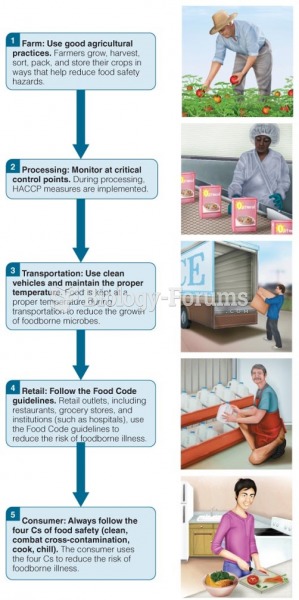|
|
|
According to the CDC, approximately 31.7% of the U.S. population has high low-density lipoprotein (LDL) or "bad cholesterol" levels.
There are actually 60 minerals, 16 vitamins, 12 essential amino acids, and three essential fatty acids that your body needs every day.
When intravenous medications are involved in adverse drug events, their harmful effects may occur more rapidly, and be more severe than errors with oral medications. This is due to the direct administration into the bloodstream.
For high blood pressure (hypertension), a new class of drug, called a vasopeptidase blocker (inhibitor), has been developed. It decreases blood pressure by simultaneously dilating the peripheral arteries and increasing the body's loss of salt.
Amphetamine poisoning can cause intravascular coagulation, circulatory collapse, rhabdomyolysis, ischemic colitis, acute psychosis, hyperthermia, respiratory distress syndrome, and pericarditis.
 Techniques for applying local anesthesia: (a) topical; (b) infiltration; (c) nerve block; (d) spinal
Techniques for applying local anesthesia: (a) topical; (b) infiltration; (c) nerve block; (d) spinal
 Stand facing the side of the table and apply cross-handed stretches for the subcutaneous fascia. ...
Stand facing the side of the table and apply cross-handed stretches for the subcutaneous fascia. ...





